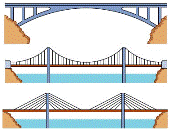Civil and Environmental Engineering, Department of

Department of Civil and Environmental Engineering: Faculty Publications
Document Type
Article
Date of this Version
12-2022
Citation
International Journal of Environmental Science and Development, Vol. 13, No. 6, December 2022. doi: 10.18178/ijesd.2022.13.6.1403
Abstract
Produced water (PW) is the effluent generated during oil mining and extraction. On average, for every barrel of oil, 4-5 barrels of PW are generated worldwide. The presence of various contaminants in PW makes it toxic. Disposal of untreated PW into oceans and water bodies can cause adverse effects on human health and the environment. Taking into account the large volumes of it being generated, and its effects on the environment, proper treatment is required before reuse or disposal. Microalgal treatment is an effective method for the bioremediation and biodesalination of produced water when acclimatized algal biomass is used for the treatment. However, harvesting this acclimatized high-value algal biomass for reuse and recycling, and the reuse or disposal of produced water is challenging. Thus, the immobilization of microalgae into polymer matrices will be beneficial in solving both problems. Different polymers, both natural and synthetic are used as matrices for immobilizing cells. In this study, experiments were done with alginate and chitosan matrices to immobilize algae. Microalgae enriched and grown in wastewater were acclimatized to three different produced water samples by progressive adaptation in a steadily increasing ratio of produced water. The algae which could adapt and grow in the highest ratio in minimum time were immobilized and used for bioremediation of produced water. The study also evaluated the stability of the matrix in produced water and the treatment efficiency. The results of the study led to the conclusion that produced water is highly toxic for the stability of alginate and chitosan matrices. A more stable matrix has to be determined and experimented with for immobilizing algae and treatment of produced water.


Comments
Open access.